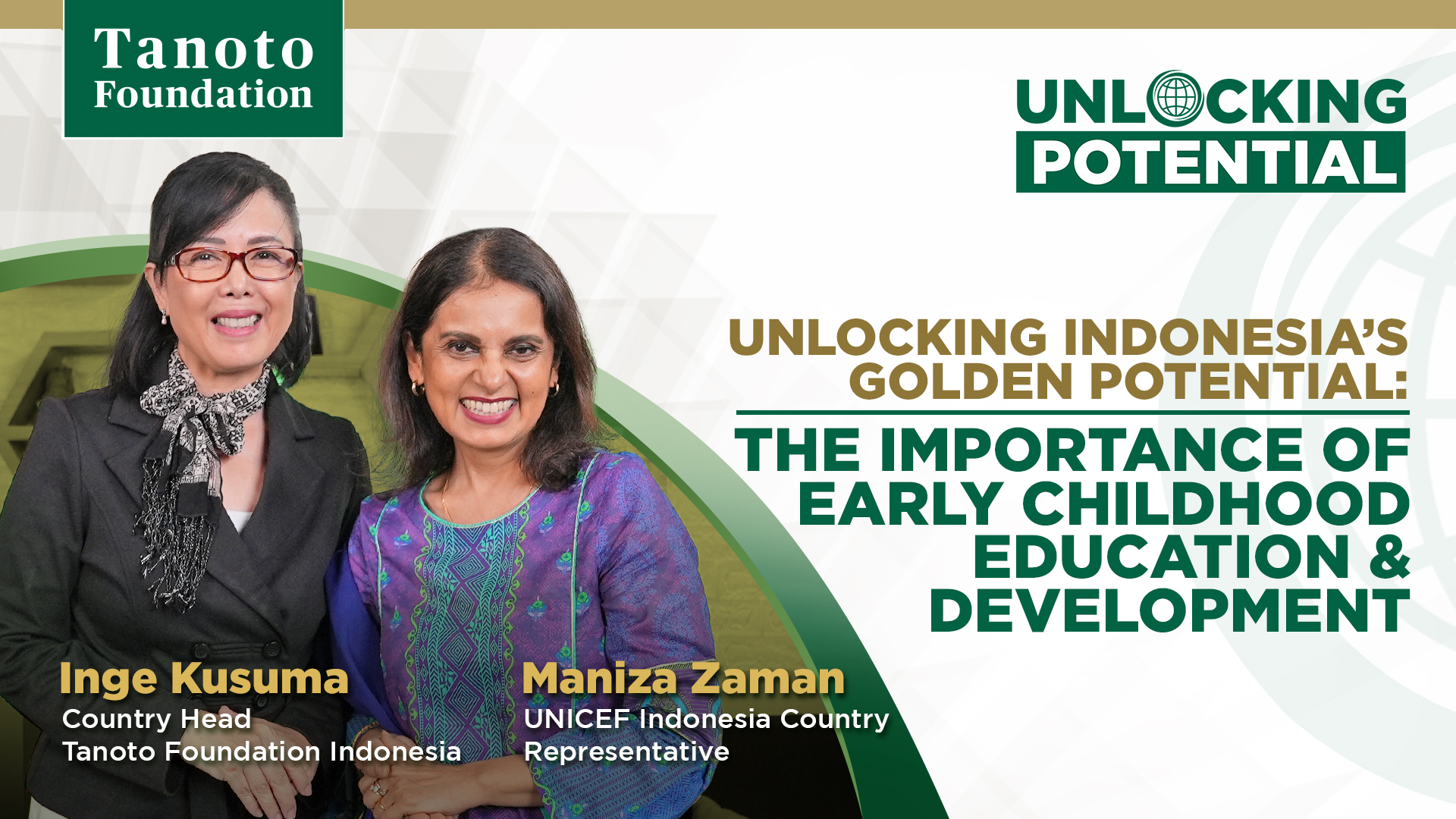Unlocking Indonesia’s Golden Potential: The critical role of Early Childhood Education and Development

In this episode, Maniza Zaman, the UNICEF Indonesia Country Representative, talks with Inge Kusuma, Country Head of Tanoto Foundation. Indonesia must drastically increase its national budget for early childhood education and development (ECED) programs because, at the moment, it is just 0.8 percent of the country’s total national education budget, much lower than the international standard of 10 percent. Private sector and philanthropic organizations are expected to contribute to this program.
Meanwhile, as the number of mobile phone devices is higher than the country’s national population, where many people have more than one device, the government and the public can utilize the technology to boost ECED across the country. Indonesia must invest now if the country wants to reap the demographic bonus in 2045 when Indonesia celebrates its 100th year of independence.
In 2045, the population of Indonesia will be about 318 million, 60% of whom are going to be of productive age. As we are going to face 20 years ahead, Indonesia needs to prepare now. Timing is going to be very essential if Indonesia really wants to reap the benefits of the productive age. We must invest now to get the bonus.
“For every rupiah you invest in education, you can reap four times your investment. You must invest if you want to reap the demographic bonus,” Maniza replied when asked by Inge.
The first years of life are absolutely critical in shaping the future of a child, society, and the generation. It actually shapes what is going to happen to that human being later on in terms of health, education, employment, and productive capacity. Why is that? “Let us look at the very early years. When a baby is born, the size of a baby’s brain is one quarter of the size of an adult’s brain, fact number one. By the age of one, the size has doubled,” said the UNICEF senior official.
Ninety percent of brain development already happens by the age of five. Third, 60% of the baby’s energy intake goes into developing the brain. Finally, a baby’s brain is capable of making one million new connections every second, a phase that is never repeated in our life.
“So now we can see how critical those very early years are, not just for development. It is a window of opportunity,” she said.
Typically, a child would go to some kind of activities in early education institutions or centers at the age of four to five. And at the age of five to six, they go to school. The importance of early childhood education is a dimension of a child’s development. It is absolutely critical children get at least one year before they go to school because it really sets up the foundation for numeracy, literacy, and character building.
“For children between three to six, it is absolutely critical for them to go to an early childhood education and development center (PAUD) for at least one year before they go to school,” she underlined.
In a population like Indonesia’s, we can use social media platforms to introduce massive parenting programs. Teachers can also use this connectivity and social media platforms. This service provides materials for ECED teaching.
Teachers too can use the connectivity and internet platforms to learn about good practices and pedagogy. Any bottlenecks should be addressed.
Watch the full video here: https://bit.ly/UnlockingPotentialTFxUNICEF

Leave a Reply